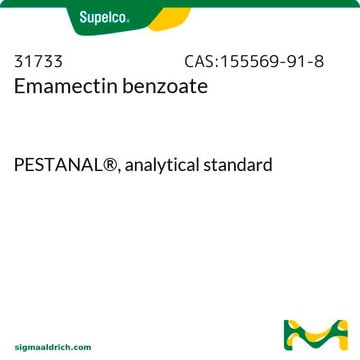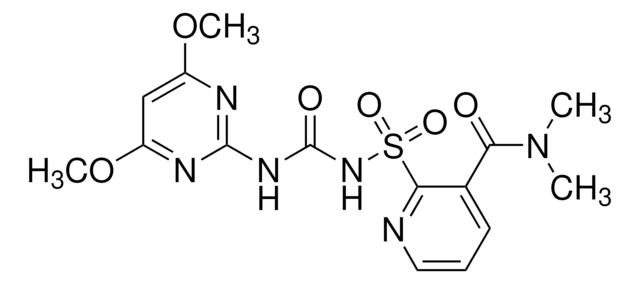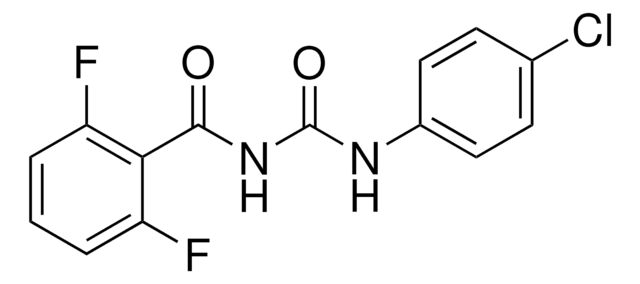32507
Methoxyfenozide
PESTANAL®, analytical standard
Synonyme(s) :
3-Methoxy-2-methylbenzoic acid 2-(3,5-dimethylbenzoyl)-2-tert-butylhydrazide
About This Item
Produits recommandés
Qualité
analytical standard
Niveau de qualité
Gamme de produits
PESTANAL®
Durée de conservation
limited shelf life, expiry date on the label
Technique(s)
HPLC: suitable
gas chromatography (GC): suitable
Application(s)
agriculture
environmental
Format
neat
Chaîne SMILES
COc1cccc(C(=O)NN(C(=O)c2cc(C)cc(C)c2)C(C)(C)C)c1C
InChI
1S/C22H28N2O3/c1-14-11-15(2)13-17(12-14)21(26)24(22(4,5)6)23-20(25)18-9-8-10-19(27-7)16(18)3/h8-13H,1-7H3,(H,23,25)
Clé InChI
QCAWEPFNJXQPAN-UHFFFAOYSA-N
Vous recherchez des produits similaires ? Visite Guide de comparaison des produits
Description générale
Application
Informations légales
Mention d'avertissement
Warning
Mentions de danger
Conseils de prudence
Classification des risques
Acute Tox. 4 Dermal - Aquatic Chronic 2
Code de la classe de stockage
11 - Combustible Solids
Classe de danger pour l'eau (WGK)
WGK 2
Point d'éclair (°F)
Not applicable
Point d'éclair (°C)
Not applicable
Équipement de protection individuelle
dust mask type N95 (US), Gloves
Faites votre choix parmi les versions les plus récentes :
Déjà en possession de ce produit ?
Retrouvez la documentation relative aux produits que vous avez récemment achetés dans la Bibliothèque de documents.
Les clients ont également consulté
Notre équipe de scientifiques dispose d'une expérience dans tous les secteurs de la recherche, notamment en sciences de la vie, science des matériaux, synthèse chimique, chromatographie, analyse et dans de nombreux autres domaines..
Contacter notre Service technique
















